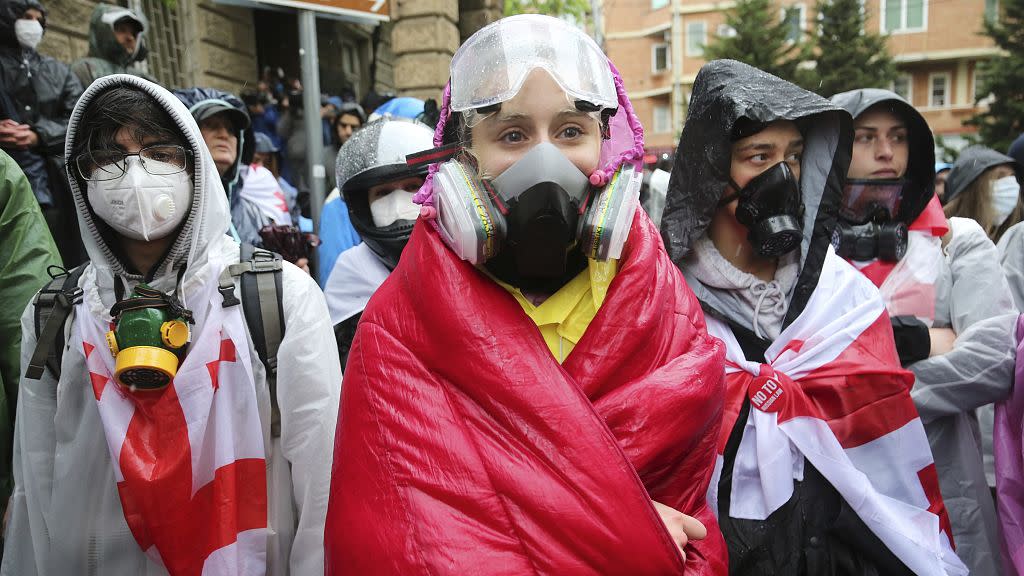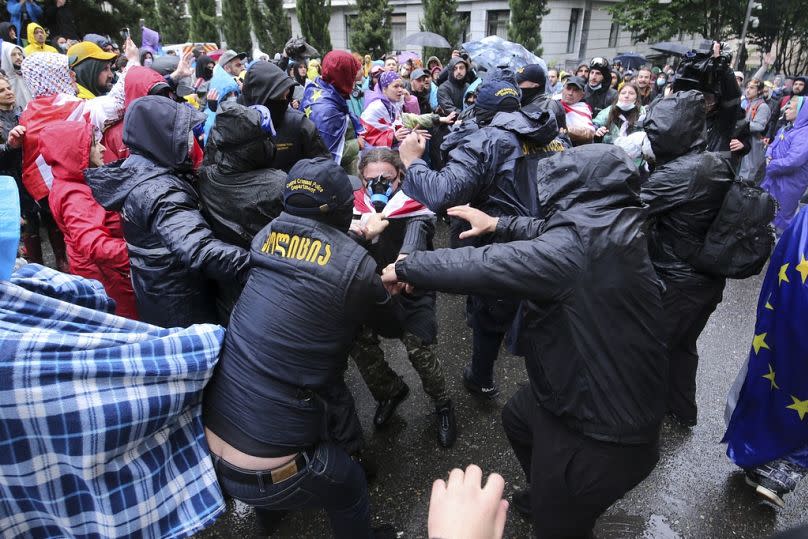Georgia's parliament approves controversial 'foreign influence law'

The Georgian parliament has approved a controversial law tightening checks and increasing fines on organisations getting funds from overseas.
Any company - including media outlets and NGOs - would now be required to register as "pursuing the interests of a foreign power" if receiving over 20 percent of funds from abroad.
The opposition defined the bill as "the Russian law," drawing parallels to Moscow's use of similar measures to suppress independent media and stigmatise activists.

Tens of thousands have been demonstrating against the bill
The law's approval followed weeks of intense and widespread protests in Georgia marked by clashes between protesters and police authorities, as well as several arrests, with tens of thousands of people taking to the streets.
In a desperate attempt to stop the bill getting to the final reading, activists tried to block parliament's access on Monday, while over the weekend, huge gatherings took place in the streets of the capital, Tbilisi, with protesters draped in Georgian and EU flags.
Georgia's ruling Dream Party had tried to get the law passed last year already, but they finally had to backtrack after a huge wave of demonstrations.
They pressed ahead again in March 2024, arguing such legislation was needed to stem a perceived foreign influence and destabilisation attempts on Georgia's politics.
Georgian Dream's Archil Talakvadze said "Society must have complete information as to who is participating in the public politics of their country, who participates in the process of making important decisions, and what influences each and every one of them".
However, the opposition argues Georgia now faces international isolation.
Independent MP Teona Akubardia says that by passing this law Georgia "is left isolated from the West and becomes an even easier pray for Russia".
'Extreme conditions in parliament'
During the reading of the bill, lawmakers got into a massive brawl, which was followed by further clashes between police and activists outside parliament.
"Today's parliamentary session was held under extraordinary and unusual conditions. With a yellow-level security alert in effect, deputies, staff, and journalists were compelled to exit the parliament building as quickly as possible," Euronews Georgia journalist Aleko Gvetadze explains.
Is it over for Georgia's EU membership application?
Many argue the "foreign influence law" is going to hamper Georgia's EU membership bid.
The country was granted candidate status in December, but the Commission warned Georgia would need to get on a path of rule of law and justice reforms.
Following recent events, EU Commission president Ursula von der Leyen warned Georgia was standing "at a crossroads" and should remain "on course" to join Europe.
The block's foreign policy chief Josep Borrell expressed concerns too over parliamentary proceedings, cautioning that the bill's enactment would impede Georgia's progress toward EU integration.
Similarly, the US said two weeks ago that "Georgia's Western trajectory was at risk".
"The United States condemns the Kremlin-inspired 'foreign influence' legislation'", said the US Department of State, denouncing "the false narrative government officials have adopted to defend it."
"Members of the ruling party have been clear that the intent of the law is to silence critical voices and destroy Georgia’s vibrant civil society", it added.

